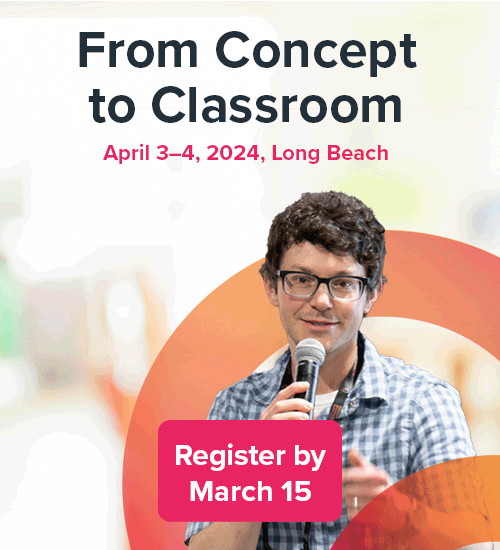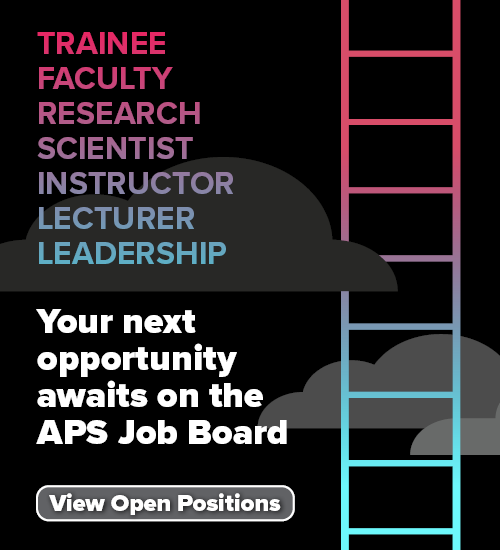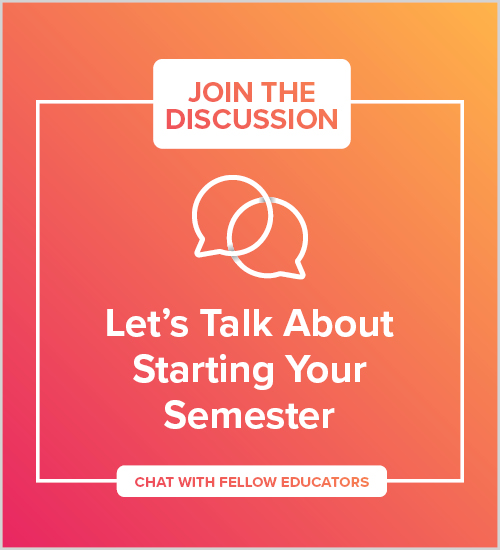Physiology Education Research
Physiology education research measures if and how students learn physiology concepts and develop relevant skills. The Center for Physiology Education values the impact of rigorous physiology education research and the development of physiology education research expertise. Work in this field is broad, with findings that provide data to inform evidence-based teaching practices. Whether educators intend to pursue education research as their central research agenda or focus on how students learn in their classrooms, the strategies that these resources provide will inform educators as they move their work forward.
The Center promotes physiology education research by:
- supporting professional development for physiology education researchers,
- recognizing and promoting the discipline of physiology education research, and
- encouraging all educators to assess their own teaching practices to promote continuous improvement.
Like any other research discipline, physiology education research requires mentorship and collaboration. New physiology education researchers are highly encouraged to find collaborators within and beyond the discipline. The Center for Physiology Education community events are an excellent resource for finding mentors and collaborators in this field.
In addition to providing resources for starting and improving an education research agenda, the resource library below provides excellent examples of physiology education research labeled as exemplars.
Resources to Explore
Get Started with Education Research
An introduction to definitions, methods, and logistics of education research.
A Portal into Biology Education: An Annotated List of Commonly Encountered Terms
Miller S and Tanner KD, CBE-Life Sciences Education,
2017
Grappling with the Literature of Education Research and Practice
Dolan E.L., CBE-Life Sciences Education, 2007
Discipline-based Education Research
National
Research Council, 2012
Ethical Approval for Research in Physiology Education
Kibble J.D., Advances in Physiology Education,
2009
Literature Reviews, Theoretical Frameworks, and Conceptual Frameworks: An Introduction for New Biology Education Researchers
Luft
J.A., et al., CBE-Life Sciences Education, 2022
Design-Based Research: A Methodology to Extend and Enrich Biology Education Research
Scott E.S., et al., CBE-Life Sciences Education,
2020
A “How To” Guide for Developing a Publishable Scholarship of Teaching Project
O'Loughlin V.D., Advances in Physiology Education,
2006
Mixed-methods Design in Biology Education Research: Approach and Uses
Warfa A.M., CBE-Life Sciences Education,
2016
Strategies for the Development and Application of Research Frameworks in Sciences Education Research
Mnguni
L., Journal of Educational and Social Research, 2021
New to Education Research? Explore the Anatomy of an Education Study
CBE-Life Sciences Education, 2022
Research Methods Videos
University of Georgia, Scientist Engaged in Education Research
Sharing and Publishing Sensitive Human Data
Rajan R., Monash University, 2022
Statistics, Authors, and Reviewers: The Heart of the Matter
Curran-Everett D. and Benos D.J., Advances in Physiology Education,
2009
How to Write an Educational Research Grant: AMEE Guide No. 101
Blanco M.A.,
et al., Medical Teacher, 2015
EXEMPLAR: FAIL Is Not a Four-Letter Word: A Theoretical Framework for Exploring Undergraduate Students’ Approaches to Academic Challenge and Responses to Failure in STEM Learning Environments
Henry
M.A., et al.,
CBE-Life Sciences Education, 2019
EXEMPLAR: Academic Performance in Human Anatomy and Physiology Classes: A 2-yr
Study of Academic Motivation and Grade Expectation
Sturges D., et al., Advances in Physiology Education, 2016
Classroom Assistance: The Scientists Turning the Tools of Their Trade to Education
Dance A., Nature, 2023
EXEMPLAR: Which Evidence-based Teaching Practices Change Over Time? Results from a University-wide STEM Faculty Development Program
Jackson
MA, et al., International Journal of STEM Education, 2022
EXEMPLAR: The Pipeline of Physiology Courses in Community Colleges: To University,
Medical School, and Beyond
McFarland J.L. and Pape-Lindstrom P., Advances in Physiology Education, 2016
Centering the Experiences of Community College Students and Faculty in Biology Education Research
Alvares S.M., et al., CBE-Life Sciences Education,
2022
Community College Anatomy and Physiology Education Research: Conducting Research Where It Ought to Be Done
Jensen M., et al.,
Journal of the Human Anatomy and Physiology Society, 2020
Professional Development, Shifting Perspectives, and Instructional Change among Community College Anatomy and Physiology Instructors
Hyson
A.R., et al., CBE-Life Sciences Education, 2021
How to Write a Journal Article: Tips and Tools
Boon S., Canadian Science Publishing, 2017
How to Write a Scientific Peer Review: A Guide for the New Reviewer
Zimmerman
E., Canadian Science Publishing, 2017
How to Write a Scientific Paper—Video
Global Health with Greg Martin, BioMed Central, 2018
The Thrill of the Paper, the Agony of the Review
Curran-Everett D., Advances in Physiology Education,
2017
Select or Design an Assessment Instrument
Resources for determining the appropriate tool to collect data on student perspectives or learning gains.
A Primer for Developing Measures of Science Content Knowledge for Small-Scale Research and Instructional Use
Bass K.M., et al., CBE-Life Sciences Education, 2017
Checking Equity: Why Differential Item Functioning Analysis Should Be a Routine Part of Developing Conceptual Assessments
Martinková P., et al., CBE-Life Sciences Education, 2017
Best Practices for Measuring Students’ Attitudes toward Learning Science
Lovelace M. and Brickman P., CBE-Life Sciences Education, 2017
Contemporary Test Validity in Theory and Practice: A Primer for Discipline-Based Education Researchers
Reeves T.D. and Marbach-Ad G., CBE-Life Sciences Education, 2017
One Size Doesn’t Fit All: Using Factor Analysis to Gather Validity Evidence When Using Surveys in Your Research
Knekta E., et al., CBE-Life Sciences Education, 2019
Developing Questionnaires for Educational Research: AMEE Guide No. 87
Artino Jr., A.R., et al., Medical Teacher, 2014
How to Create a Bad Survey Instrument
Sullivan G.M. and Artino Jr., A.R., Journal of Graduate Medical Education, 2017
Establishing Survey Validity: A Practical Guide
Cobern W.W. and Adams B.A.J., International Journal of Assessment Tools in Education, 2020
EXEMPLAR: Phys-MAPS: A Programmatic Physiology Assessment for Introductory and Advanced Undergraduates
Semsar K., et al., Advances in Physiology Education, 2018
EXEMPLAR: Development and Validation of the Homeostasis Concept Inventory
McFarland J.L., et al., CBE-Life Sciences Education, 2017
EXEMPLAR: A New Assessment to Monitor Student Performance in Introductory Neurophysiology: Electrochemical Gradients Assessment Device
Cerchiara J.A., et al., Advances in Physiology Education, 2019
EXEMPLAR: A Manual for the Use of the Motivated Strategies for Learning Questionnaire (MSLQ)
Pintrich P.R., et al., Office of Educational Research and Improvement, 1991
EXEMPLAR: The Classroom Discourse Observation Protocol (CDOP): A Quantitative Method for Characterizing Teacher Discourse Moves in Undergraduate STEM Learning Environments
Kranzfelder P., et al., PLOS ONE, 2019
EXEMPLAR: The Classroom Observation Protocol for Undergraduate STEM (COPUS): A New Instrument to Characterize University STEM Classroom Practices
Smith M.K., et al., CBE-Life Sciences Education, 2017
EXEMPLAR: The Best of Both Worlds: Building on the COPUS and RTOP Observation Protocols to Easily and Reliably Measure Various Levels of Reformed Instructional Practice
Lund T.J., et al., CBE-Life Sciences Education, 2017
EXEMPLAR: Measurement Instrument for Scientific Teaching (MIST): A Tool to Measure the Frequencies of Research-Based Teaching Practices in Undergraduate Science Courses
Durham M.F., et al., CBE-Life Sciences Education, 2018
Research Methods Videos
Souza-Smith F., et al., University of Georgia, Scientist Engaged in Education Research
Conduct an Appropriate Quantitative Analysis
Explore resources explaining specific approaches for analyzing data collected in education research.
Is It the Intervention or the Students? Using Linear Regression to Control for Student Characteristics in Undergraduate STEM Education Research
Theobald
R. and Freeman S., CBE-Life Sciences Education, 2017
Interactions Are Critical
Beck C.W. and Bliwise N.G., CBE-Life Sciences Education, 2017
Students Are Rarely Independent: When, Why, and How to Use Random Effects in Discipline-Based Education Research
Theobald
E., CBE-Life Sciences Education, 2018
Mixed-methods Design in Biology Education Research: Approach and Uses
Warfa A.M., CBE-Life Sciences Education,
2016
Research Methods Videos
Souza-Smith F., et al., University of Georgia, Scientist Engaged in Education Research
Small Steps to Help Improve the Caliber of the Reporting of Statistics
Curran-Everett D., Advances in Physiology Education,
2017
Beyond Linear Regression: A Reference for Analyzing Common Data Types in Discipline Based Education Research
Theobald
E.J., et al., Physical Review Physics Education Research, 2019
Dealing with Quantitative Research Data
Department of Physiology, Monash University, 2022
Exploration in Statistics Collection
Advances in Physiology Education
General Statistics Collection
Advances in Physiology Education
Reporting Statistics Collection
Advances in Physiology Education
Statistics Made Easy—Video
Global Health with Greg Martin, BioMed Central, 2019
T-test, ANOVA and Chi Squared Test Made Easy—Video
Global Health with Greg Martin, BioMed Central, 2022
Linear Regression - Made Easy—Video
Global Health with Greg Martin, BioMed Central, 2022
R Programming for Beginners—Video
Global Health with Greg Martin, BioMed Central, 2017
Understand the Basics of Qualitative Research
Gain a fundamental understanding of approaches for collecting and analyzing qualitative educational research data.
Demystifying Content Analysis
Kleinheksel A.J., American Journal of Pharmaceutical Education, 2020
Research Methods Videos
Souza-Smith F., et al., University of Georgia, Scientist Engaged in Education Research
Qualitative Research Methods for Science Education
Erickson
R., Second International Handbook of Science Education, 2012
The Qualitative Research Interview
DiCicco-Bloom B. and Crabtree B.F. Medical Education, 2006
A Practical Guide to Focus-Group Research
Breen R.L., Journal of Geography in Higher Education, 2006
Twelve Tips for Conducting Qualitative Research Interviews
McGrath C., et al., Medical Teacher,
2018
Interpretive Phenomenological Analysis
Smith J.A. and Osborn M., Qualitative Psychology,
2007
Introduction to Qualitative Research
Rajan R., Monash University, 2022
EXEMPLAR: Patience, Persistence and Pragmatism: Experiences and Lessons Learnt from the Implementation of Clinically Integrated Teaching and Learning of Evidence-Based Health Care - A Qualitative Study
Young
T., et al., PLOS ONE, 2015
Qualitative Research Methods—Video
Global Health with Greg Martin, BioMed Central, 2020
Listen to the Latest APS Publications Podcast
Explore the Center
Themes and Resources
- Evidence-based Teaching Practices
- Inclusive Teaching
- Teaching and Learning Integrative Physiology
- Physiology Education Research
- Curriculum Development
Community Events
Share your event ideas
More from the Center
- Center Home
- About the Center
- Support the Center
- Meet the Advisory Board
- Interactive Content from Center Partners
- Signup for Announcements
- Advances in Physiology Education
- Be a Champion for the Center
- Solutions for Educators
Volunteer
#CenterForPhysiologyEd
Physiology Education Research Working Group
 Jennifer Doherty, PhD
Jennifer Doherty, PhD
Michigan State University, East Lansing
 Patricia Halpin, PhD
Patricia Halpin, PhD
Chair, APS Teaching of Physiology Section, University of New Hampshire, Manchester
 Jonathan Kibble, PhD
Jonathan Kibble, PhD
University of Central Florida, Orlando
 Tasneem Mohammed
Tasneem Mohammed
Arizona State University, Tempe
 Justin Shaffer
Justin Shaffer
Colorado School of Mines, Golden
 Sheela Vemu, PhD
Sheela Vemu, PhD
Waubonsee Community College, Sugar Grove, Illinois




